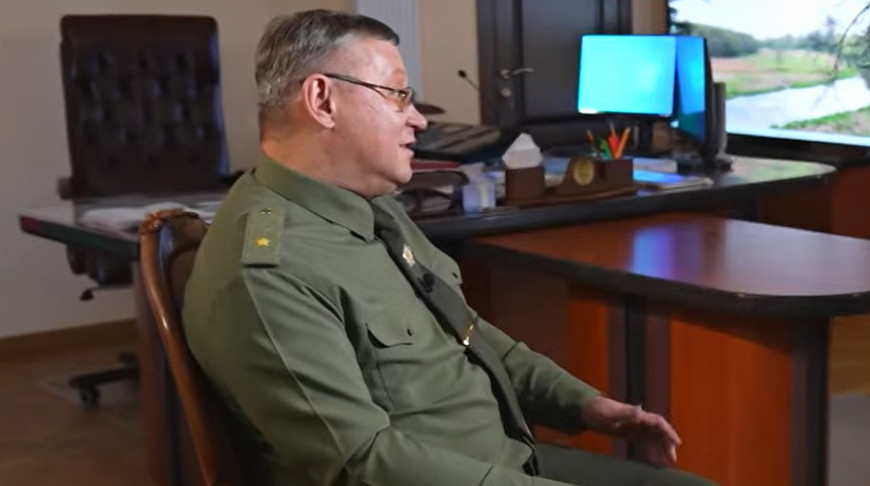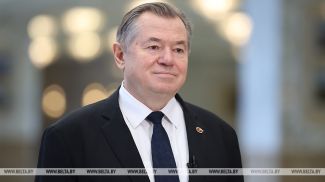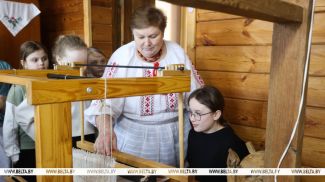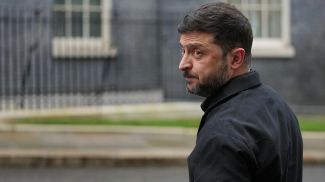
Pavel Muraveiko. Image credit: ONT
MINSK, 30 June (BelTA) – The NATO bloc and the United States of America are conducting four operations near Belarusian borders and Belarus has come up with options in response to all the conceivable and inconceivable provocations so far. Chief of the General Staff of the Armed Forces, First Deputy Defense Minister, Major-General Pavel Muraveiko made the statement on the air of the Belarusian TV channel ONT, BelTA has learned.
Pavel Muraveiko said: “By joining the European Union, NATO back in the day, Baltic states became donors of their population to other European countries. Essentially all the able-bodied people, who are even a little bit ready to defend these countries, up and left to make money in Germany, France, Portugal, and so on. But you have to defend your country. If you don’t want to feed your own army, you will have to feed someone else’s. It is a classic axiom that has been known for ages.”
“As many as ten NATO battalion tactical groups with the total strength of over 20,000 people are deployed near our borders today. Including six American ones,” the officer stressed.
After saying that it was initially supposed to be a temporary deployment, Pavel Muraveiko reminded that there is nothing more permanent than temporary.
“Are we pleased with these neighbors? We are concerned and worried about it. We are encouraged to look at and evaluate every action. We carefully monitor all the actions of NATO troops and the national armed forces of the countries we border on. We study the tricks and methods they practice. We see perfectly well that four operations or missions of the NATO bloc and the United States of America are in progress near our borders. But we have come up with options in response to all the conceivable and inconceivable provocations so far,” Pavel Muraveiko stressed.
“Secondly, it is customary for diplomats to talk before guns do the talking. Despite declarations about curtailed cooperation and contacts the military still maintain cooperation,” he stated.
No one is more pacifistic than the military, the major-general noted. “We clearly understand all the consequences of war. We know how to fight and we know how to do it. But our main task is to prevent the processes that will make us put this knowledge to practice,” Pavel Muraveiko summarized.













